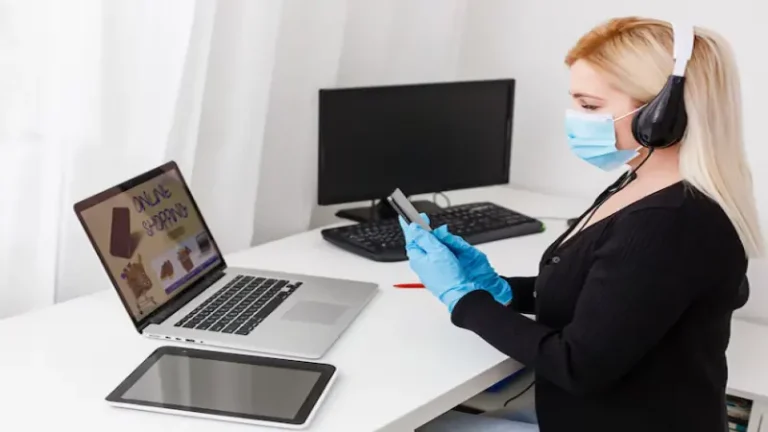Post-Surgery Care: Essential Health Practices After Facial Plastic Surgery
Beverly Hills is synonymous with luxury, prestige, and a lifestyle many aspire to. Among the city’s many offerings, facial plastic surgery is a popular choice for those looking to enhance their appearance, whether for aesthetic reasons or due to any medical reason. While much attention is given to the procedure, what happens after surgery is just as important. Proper post-surgery care ensures the best results and a smooth recovery.
This guide will walk you through some important health practices to adopt once you’re out of the operating room, ensuring you recover quickly, stay healthy, and maximize your investment.
- Consult Your Surgeon About Post-Operative Care
The success of facial plastic surgery doesn’t just rely on the procedure itself but on how well you follow post-operative care. In an expensive city like Beverly Hills, where plastic surgery is a major investment, it’s vital to ensure you’re well-informed about how to care for yourself after leaving the clinic to get the best results. Before your surgery, set up a detailed conversation with your surgeon to go over every aspect of your post-op care.
Ask questions about what to expect in the immediate aftermath and beyond. Will you need specific medications? What are the dos and don’ts for the first few days? How should you clean and care for the surgical area? A good Beverly Hills facial plastic surgery expert should provide you with a thorough guide that covers everything from medication schedules to dietary restrictions and more. Remember, you’re paying for expertise, so make sure they offer comprehensive instructions. A surgeon in a high-end market like Beverly Hills should take the time to tailor the advice to your unique case. Taking the time to plan post-op care with your surgeon ensures fewer complications and a better outcome.
- Properly Manage Your Medications
A key part of your recovery will be the medications your surgeon prescribes. Typically, these will include antibiotics to prevent infection, pain relievers to manage discomfort, and possibly other medications to reduce inflammation or aid healing. You must follow the instructions carefully and avoid missing doses. Managing your medication is necessary if you want to avoid setbacks in your recovery.
Moreover, don’t mix medications without consulting your surgeon or pharmacist. Certain over-the-counter drugs or supplements may interfere with your prescribed meds, prolonging your recovery time.
- Rest, But Don’t Be Completely Immobile
Rest is vital in the early days following facial plastic surgery, but it’s equally important not to be entirely inactive. Staying in bed for too long can lead to complications such as blood clots or slowed circulation. Light, gentle movements, like taking short walks around your home, can significantly aid your recovery by promoting blood flow and reducing the risk of clotting.
The key is balance. You don’t want to strain yourself, but you should avoid being completely sedentary. Even if you don’t feel like moving much, remember that light activity is part of the healing process. Just be mindful of your body, and don’t push yourself too soon.
- Protect Your Face from the Sun
In a sunny locale like Beverly Hills, it’s important to be particularly mindful of sun exposure after facial plastic surgery. Your skin is in a delicate state post-operation, and UV rays can worsen swelling, cause discoloration, or even result in permanent scarring. Even if you’re only stepping outside for a short time, take precautions by wearing a hat, covering your face (if possible), and applying sunscreen with high SPF.
Sun damage can delay your healing and affect the final results of your surgery, so be diligent in protecting your skin. For the best protection, avoid direct sunlight altogether in the first few weeks.
- Avoid Smoking and Alcohol
One of the most crucial factors in healing after facial plastic surgery is avoiding smoking and alcohol. Both smoking and drinking can have detrimental effects on your recovery.
Smoking is particularly damaging because it restricts blood flow, reducing the amount of oxygen that reaches the healing tissues. This can slow down the recovery process and increase the risk of complications, such as infection or necrosis (death of tissue). Many surgeons recommend that patients quit smoking at least two to three weeks before surgery and continue abstaining for several weeks after.
Alcohol has a similar effect on blood flow and can also thin your blood, increasing the risk of excessive bleeding during the healing process. It can also dehydrate your body, which is the last thing you want while you’re trying to recover. Post-surgery, hydration is key, and alcohol works against that. So, refrain from drinking alcohol for at least a few weeks after surgery to give your body the best chance of healing well.
- Follow a Nutrient-Rich Diet
A nutrient-rich diet will give your body the fuel it needs to repair tissues, reduce inflammation, and support a smooth recovery process.
Leafy greens, fruits, lean proteins, and foods high in omega-3 fatty acids (like salmon and walnuts) are all excellent choices. Vitamin C, found in citrus fruits and berries, promotes collagen production, which is crucial for wound healing.
- Manage Swelling with Ice and Elevation
Swelling is one of the most common side effects of facial plastic surgery, and while it’s completely normal, there are steps you can take to minimize it. Using ice packs during the first 48 hours after surgery can reduce swelling and help control discomfort.
Another effective strategy is keeping your head elevated. Elevation helps fluids drain away from your face, reducing swelling. Use extra pillows or a wedge pillow to keep your head propped up when sleeping. Avoid lying flat or sleeping on your side, as this can worsen swelling and put unnecessary pressure on your face.
Recovering from facial plastic surgery is as much about self-care as it is about following medical advice. Each step in your post-surgery routine, from protecting your skin to managing swelling, is an opportunity to nurture your body as it heals. This process is a chance to reconnect with yourself, embracing rest and patience while allowing your body the time it needs to repair and rejuvenate.






